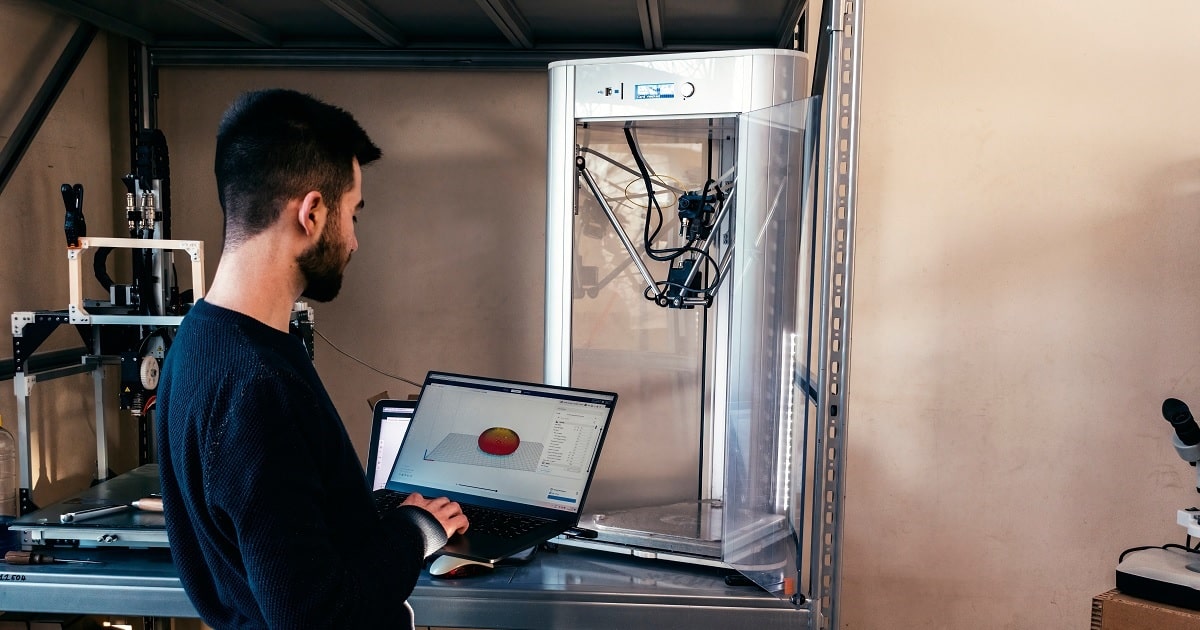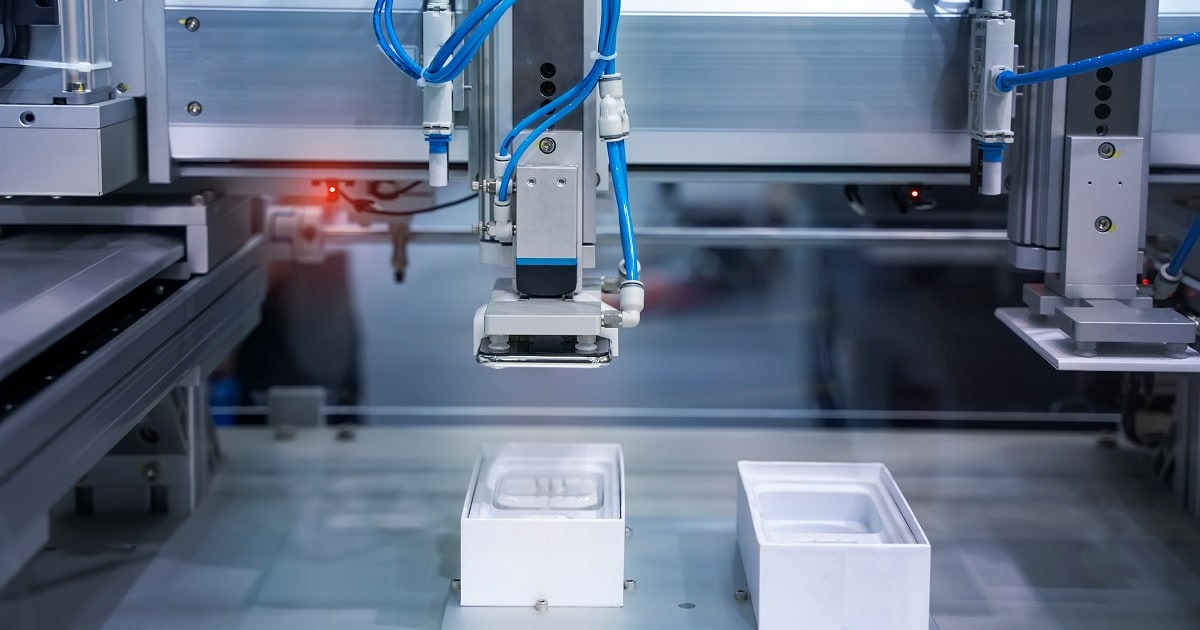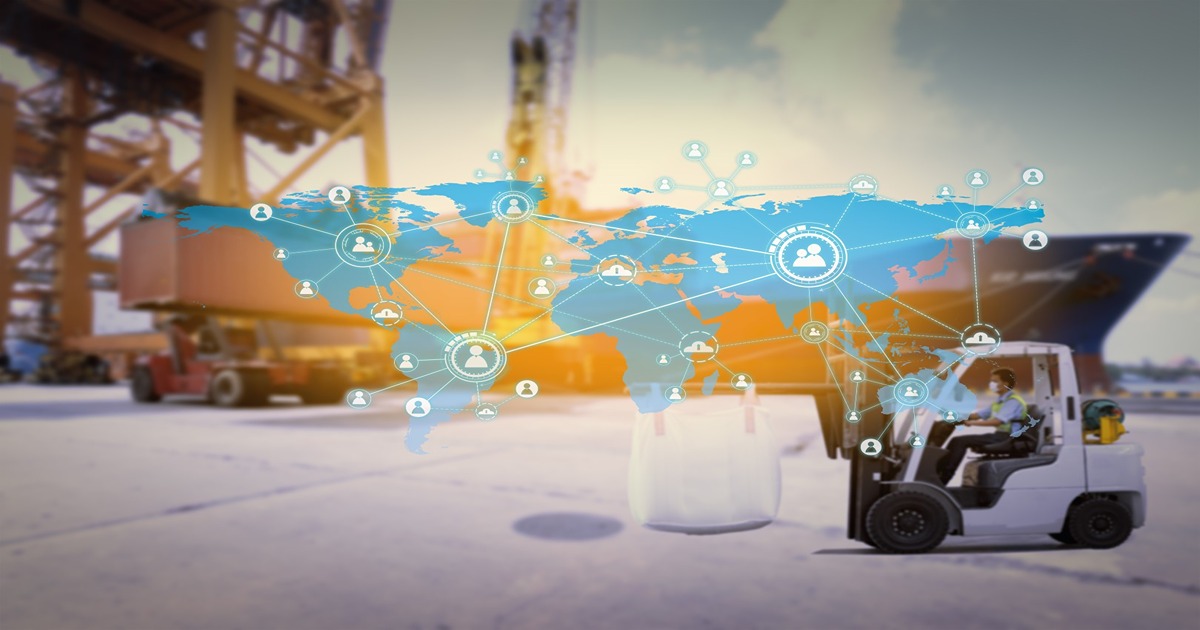
Supply Chain
Article | May 26, 2023
Introduction
From warehouse robots to delivery drones, the supply chain is experiencing a tremendous upheaval. AI promises a totally autonomous and self-organized future supply chain. A fleet of vehicles utilizing a swarm algorithm can enhance cargo yard throughput; a trusted peer-to-peer ledger on blockchain architecture could change compliance in the sector; and wearables, mobile robotics, and machine learning technologies could speed up order fulfilment. IOT e-brokerage solutions can link shops to couriers and transporters with a click. Tomorrow's supply chain will be leaner, quicker, and self-organized. A few innovative technologies will fuel this unparalleled rate of change over the next 15 years. Here are the major technologies that are shaping the future of the logistics industry.
Logistics Technologies for the Future
Shipment Tracking Systems
Previously, customers ordered shipments, had an anticipated arrival date, and then were kept in the dark until they chose to call. Customers can now access shipping and tracking systems around-the-clock due to developments in the internet and software. This not only enhances the customer experience (cx), but it also saves the business time and money.
Internet of Things (IoT)
The IoT reduces costs and delays by minimizing hazards in the supply chain. Cabs, cargo ships, trains, etc., have sensors that link to an alarm system or dispatcher. These sensors analyze and communicate information to the crew, who learns about hidden threats. IoT isn't a new technology, but it continues to influence logistics by improving in-transit visibility and delivery.
Radio Frequency Identification (RFID)
RFID technology has been used for a few years to monitor inventories labor-efficiently. A product tag or sensor produces radio waves. The company processes the data. RFID tags are similar to barcodes, but their faster information transport and data processing appeal to companies and the direction of technology. Many organizations use RFID tags to track containers in warehouses.
Enhanced GPS Accuracy
Almost everyone utilizes GPS on their vehicles or smartphones. These devices' accuracy has improved over time, assisting lost drivers and enhancing the supply chain. By monitoring truck locations and boosting hauls with current traffic data, GPS increases efficiency and customer satisfaction.
Closing Lines
Unprecedented times have produced unprecedented transformations that will last for generations. Changing demographics, technology improvements, and COVID-19 impacts are altering global supply networks. We must understand the driving factors and act on what we learn to adapt and rise to the situation. For the sake of our current workforce and future generations.
Read More

Warehousing and Distribution
Article | June 16, 2023
The unsurprising investment eagerness of venture capital funds is manifesting in an automation tech glut in the distribution center space. Motivated by enabling trends like labor and land shortages, DCs are amid an automation transformation. Never has defining an automation strategy been more important.
There’s no shortage of VC cash available to logistics tech startups
With a brightly shining spotlight centered on supply chains for the past two years, it’s no surprise that total funding in logistics startups has seen a dramatic increase – growing at over 70% CAGR (Compound Annual Growth Rate). Logistics technology startups raked in over $25 billion in the first three quarters of 2021. That’s more than half of the total amount raised in the whole of 2020, and the incentives for continuing investment persist.
The rise of the of the “micro” DC
“Micro” is a relative term. The size of a micro fulfillment center (MFC) can range from 5,000 to 50,000 square feet. Those reduced square footages allow location in dense urban areas, typically within 40 miles of most of their intended customers. In addition, smaller footprints lead to reduced rents compared to a standard customer fulfillment center (CFC), and the proximity to consumers makes for lower final mile delivery costs. It’s no wonder that MFCs accounted for more than half of the logistics real estate leasing activity in the third quarter of 2021. The “urban logistics” trend is fueling demand for these highly automated, smaller locations.
Vertical logistics integration grows ever more fashionable among retailers
It’s a very “in” thing right now, these acquisitions and partnerships, and they won’t be going out of fashion soon. For example, American Eagle took in Airterra and its parcel optimization tech and third-party logistics (3PL) provider Quiet Logistics.
Target started early. They bought Grand Junction, a software platform that helps retailers determine the best delivery method and track carrier performance, in 2017. Their 2020 acquisition of Deliv brought with it same-day delivery routing technology that they’re now applying to their 2021 purchase, on-demand delivery service Shipt. Target uses Delivs’ tech to generate more efficient routes for Shipt.
Kroger has partnered with UK’s e-grocery specialist Ocado to build automated CFCs across the US and expand their retail footprint. The first CFC opened last spring in Ohio and their second in Florida later that year. They plan to open 20 CFCs over the next three years.
“The proliferation of DC automation solutions and modalities, the rise of MFCs in high-density urban areas, the increasingly automated vertical integration of logistics, and the need to rapidly expand order fulfillment capacity have all, in combination, advanced the need for and application of clearly defined strategies concerning the implementation of automation technology. Do not operate without one.”
Vikas Argod, Principal, Supply Chains Operations practice at Chainalytics
Coping with shortages in warehouse space and labor availability
Third quarter, 2021 US demand for industrial real estate exceeded supply by 41 million square feet. This pushed the national vacancy rate in the fourth quarter down to a record 3.7% in the Cushman & Wakefield US National Industrial MarketBeat report for Q4 2021. Who knows what the record might be when the Q1 2022 report breaks in a few weeks?
On the labor side, the December 2021 US unemployment rate was 3.9%, lower than in December 2019 (3.6%) yet reflecting a tighter labor market. Labor force participation rates are at 61.9%, nearly 2% below February 2020 levels, because of lingering effects of the COVID-19 pandemic. The rising wages and signing bonuses of the past year offer silent testimony to the ongoing constraints in today’s labor market.
Both trends will remain with us for the near- and mid-term, making an automation strategy a necessary part of your DC operations as you attempt to mitigate the effects of both. In addition, warehouse labor shortages are most pronounced in markets with high distribution center densities – Greater Memphis, In-land Empire, Allentown, PA, et al.)
Building the capability to rapidly open DCs at scale
No other factor drives home the need for a coherent DC automation strategy like this one. Let’s explore it with an example.
We’ll call this “A Tale of Two Companies.” One jumped on the automation bandwagon without hesitation – not a bad thing – but applied no strategic groundwork. The other is, well, Amazon.
Company one responded to increasing demand by creating DCs in their usual, strategically located fashion. However, with automation, the lack of a logical strategy led to adopting “the best that money could buy.” So, while these DCs work fine on their own (most of the time), each employs unique implementations from a variety of vendors, with little to no overlap of methods, capabilities, and management procedures between DCs. It’s functional, but a needlessly complicated hodgepodge.
On the other hand, it definitely looks like Amazon has a standardized automation strategy. One that can easily adapt to exploit the individual physical specifications of any space. This makes it simple to arrive and equip it with a standard package of automation solutions. That’s probably how Amazon blanketed the US with over 400 new DCs in just the last two years. They waste no time or money on repeating unnecessary decisions along the way.
Now, we all can’t have the resources of an Amazon. However, the rise of on-demand warehousing companies like Stord and Flexe allow organizations to dramatically decrease the cycle time of standing up additional fulfillment capability.
Developing an automation strategy will feel familiar. It begins with benchmarking, order profiling, current performance drivers, EBIT targets, and theoretical evaluations of newer technology options. All this leads to the creation of a decision framework for DC automation. The goal here is achieving alignment among the leadership on critical capabilities to focus on. These include rapid fulfillment, labor shortage, capacity constraints, safety challenges, or sustainability. Those that commit to this process will start slowly but finish with a strategy that will underpin thousands of decisions and enable sustained rapid growth.
If, in the end, you decide that automation is not right for your operation, that’s a perfectly valid strategy as well. So long as you have a method to evaluate all of your options, and you base your decision on cost-service-sustainability trade-offs, the right strategy for your organization may be no automation at all.
There’s no point in chasing shiny robotic objects if automation makes little sense.
The rise of automation and the multitude of technologies to choose from require the development of a strategic decision framework. Contact us and see how Chainalytics – an NTT DATA company – can be your guide in developing this critical part of your foundation for growth. Our top supply chain talent, enabled by proven, leading-edge digital assets – tools, methods, and content – deliver actionable insights and measurable outcomes to some of today’s largest and most complex supply chains.
Read More

Supply Chain
Article | May 22, 2023
Autonomous robots have transitioned from a futuristic system that only a few enterprises could afford to a sustainable, well-established solution in a wide assortment of warehouse automation projects in recent years.
With the flourishing transportation and logistics industry and increasing e-commerce penetration worldwide, innovative technologies are revealing promising opportunities throughout the supply chain.
Warehouse Automation: Driving Value in the Supply Chain
Historically, autonomous robots have been used to perform tedious and repetitive tasks, necessitating sophisticated programming for setup and incorporation while lacking the dexterity to easily adjust operations.
As autonomous robots become more intelligent, their setup times decrease, they need less monitoring, and they are able to work alongside their human counterparts. The benefits for the future supply chain are increasing as autonomous robots become more capable of working day and night with more consistent levels of productivity and quality and performing tasks that individuals should not, cannot, or do not want to do.
Autonomous robots drive advancements and add value to the supply chain, primarily by increasing revenue potential and lowering direct and indirect operating costs. Autonomous robots, in particular, can assist:
Boost efficiency and productivity.
Lower risk, error frequency, and rework rates.
Enhance employee safety in high-risk workplaces.
Handle low-value, routine tasks so people can work together on strategic projects that can't be done by machines.
Raise revenue by optimizing order fulfillment rates, and delivery speed, and, ultimately, increasing customer satisfaction.
Sneak Peek into the Future of Autonomous Robot
Autonomous robots are expected to witness strong growth in the coming years. These robots will become more common in the future supply chain as technology advances, allowing them to operate with more human-like abilities. Improvements in haptic sensors, for example, will enable these robots to grasp objects varying from multi-surfaced metal assembly parts to fragile eggshells without requiring changes to robotic components or programming. This will encourage companies operating in the industry to increase their research and development activities and introduce innovative and advanced supply chain technologies.
Read More

Supply Chain
Article | March 23, 2023
Efficiency is crucial for B2B supply chain success. Effective supply chain management techniques can streamline operations, reduce costs, and enhance customer satisfaction from planning to delivery.
Contents
1. Strategic Planning to Enhance Supply Chain Optimization
1.1 Roadmap for Developing Supply Chain Optimization
1.2 Integrating Supply Chain Strategy with Business Strategy for ROI Growth
2. Effective Procurement Strategies to Maximise ROI in Supply Chain
2.1 Supplier Relationship Management
2.2 Cost-effective Procurement Processes
2.3 Continuous Improvement and Innovation
2.4 Risk Management and Mitigation
3. Optimizing Supply Chain with Effective Demand Forecasting Techniques
3.1 Anticipate Future Demand
3.2 Overstocking and Understocking Risk Management
3.3 Integrated Forecasting approach between Supply Chain Stakeholders
4. Emerging Technologies for Supply Chain Optimization Leveraged by Enterprises
4.1 AI and ML
4.2 Blockchain Technology
4.3 IoT
4.4 Augmented Reality and Virtual Reality
5. Leading Solution Providers for B2B
6. Conclusion
Optimizing the B2B logistics and supply chain management has become a crucial business strategy to increase efficiency, cut costs, and boost customer satisfaction in the fiercely competitive business environment. With the increasing customer demand, supply chain managers now emphasize on faster, more precise, and unique ways to fulfill orders with enhanced logistics management techniques.
“Companies that optimize their supply chain operations experience a 2.3 times greater EBITDA (earnings before interest, taxes, depreciation, and amortization) than their competitors.”
(Source - A survey by Deloitte in 2020)
Despite the significance of supply chain optimization, it is challenging to keep up with the latest industry trends and best practices due to the dynamic nature of the logistics industry. Learning the value of optimizing the B2B supply chain and how it can assist businesses in keeping up with the ever-growing demands of their customers through planning, strategizing and leveraging technologies helps businesses maintain a competitive advantage and achieve sustainable growth.
1. Strategic Planning to Enhance Supply Chain Optimization
To achieve optimal results, businesses must develop a comprehensive plan outlining their supply chain improvement goals, objectives, and strategies.
1.1 Roadmap for Developing Supply Chain Optimization
Developing a roadmap for supply chain optimization includes reviewing current operations that help in identifying the strengths and weakness of the supply chain management and assist in recognizing the opportunities for improvement, establishing SMART goals and objectives, defining strategies to meet these goals, involve streamlining processes, investing in technology, improving supplier relationships, and engaging customers and actions, as well as ensuring market adaptability to accommodate changing market conditions and evolving customer needs through assessment and adjusting the roadmap.
1.2 Integrating Supply Chain Strategy with Business Strategy for ROI Growth
Integration of the supply chain involves aligning the supply chain objectives with the overall business goals, such as revenue growth, cost reduction, and customer satisfaction. The integration ensures the supply chain operations support the business goals, like cost reduction, customer satisfaction and revenue growth.
"Companies that successfully integrate their supply chain and business strategies can reduce operating costs by 10-15% and increase efficiency by 20-30%.”
(Source - A study by Accenture in 2020)
The alignment further helps track KPIs and data-driven decision-making and continuously improves the supply chain operations to achieve objectives. Furthermore, it assists in better planning, coordination, and execution of supply chain activities, resulting in faster and more accurate fulfillment of customer orders.
2. Effective Procurement Strategies to Maximize ROI in Supply Chain
Procurement strategies can raise productivity in the fast-paced logistics management and supply chain industry by optimizing the supply chain, boosting efficiency, and giving a competitive edge.
2.1 Supplier Relationship Management
Effective supplier relationship management (SRM) can result in more competitive pricing, enhanced product quality, and increased dependability. To accomplish SRM, businesses must identify key suppliers, develop partnerships, communicate effectively to ensure clear expectations and mutual understanding, share information and collaborate to foster innovation and continuous improvement.
2.2 Cost-effective Procurement Processes
Implementing cost-effective procurement procedures can help businesses reduce expenses and enhance productivity. To achieve cost-effectiveness, businesses should streamline operations to save time and money, leverage technology to automate processes and improve accuracy and negotiate with suppliers for better pricing and terms.
2.3 Continuous Improvement and Innovation
Continuous improvement and innovation are necessary for logistics and the supply chain to remain competitive. This involves regularly reviewing and updating procurement processes, supporting supplier innovation, and keeping up with procurement and supply chain management technology trends and developments.
2.4 Risk Management and Mitigation
Effective risk management and mitigation strategies are essential to prevent disruptions in the supply chain. To achieve this, businesses should focus on identifying potential risks and developing mitigation strategies, incorporating redundancy into the supply chain to minimize the impact of disruptions, and establishing transparent emergency communication and escalation procedures.
3. Optimizing Supply Chain with Effective Demand Forecasting Techniques
3.1 Anticipate Future Demand
Accurate demand forecasting is crucial for supply chain optimizing done by analyzing real-time supply chain data to identify trends. For demand forecasting, businesses can utilize historical sales data, market trends, and customer feedback. To make accurate forecasts, companies must consider various factors influencing demand, such as seasonality, economic conditions, and shifting customer preferences.
3.2 Overstocking and Understocking Risk Management
Demand forecasting errors can lead to overstocking and understocking in supply chain management. Using demand forecasting rightly can determine the optimal inventory level at any given time to avoid overstocking and understocking. Businesses can predict demand and adjust inventory by analyzing sales data, market trends, and other factors.
3.3 Integrated Forecasting approach between Supply Chain Stakeholders
The integrated forecasting approach entails coordinating data sharing and communication between all supply chain stakeholders, from suppliers to customers. Stakeholder participation in demand forecasting improves accuracy. In addition, each stakeholder has unique knowledge and perspective that can help identify trends and patterns.
4. Emerging Technologies for Supply Chain Optimization Leveraged by Enterprises
4.1 AI and ML
Leading SCM providers do offer regression modeling and causal analysis for demand forecasting. Using AI and ML, the functionality is embedded within the DP module. If a more rigorous and sophisticated approach is desired, it is possible to forecast demand numbers outside the SCM system using sophisticated modeling and then upload them back into the SCM system.
4.2 Blockchain Technology
Blockchain enables secure, transparent, and decentralized transactions. It can be utilized in the supply chain to track the movement of goods, reduce the risk of fraud, and increase supply chain visibility by maintaining an immutable record of every transaction.
4.3 IoT
To monitor humidity, temperature control, and other environmental factors that affect the quality of products while in transit. IoT helps businesses enhance supply chain visibility, reduce product spoilage risk, and enhance customer satisfaction using modern temperature control technology.
4.4 Augmented Reality and Virtual Reality
AR and VR technologies are transforming the supply chain by improving the accuracy of inventory management, reducing errors, and enhancing the training of employees. In addition, its tools can be used to create digital representations of warehouses, products, and equipment, allowing employees to visualize the supply chain and identify areas for improvement.
5. Leading Solution Providers for B2B
Several leading B2B companies have been identified based on research for supply chain optimization. To optimize supply chains, these companies have demonstrated a commitment to strategic planning, effective procurement strategies, and demand forecasting techniques. The solution providers also recognize the significance of managing risks associated with overstocking and understocking and have implemented integrated forecasting approaches with their supply chain partners and customers. In addition, these companies use emerging technologies such as augmented reality, virtual reality, cloud technology, machine learning and AI, blockchain technology, and the IoT to improve their supply chain operations. By prioritizing supply chain optimization, the following B2B companies gain a competitive advantage within logistics and supply chain industries and provide exceptional customer experiences.
Coupa Software
The supply management solutions offered by Coupa Software are hosted in the cloud and make use of machine learning and artificial intelligence to provide businesses with insights that can be used for data-driven decision-making.It assists businesses in tracking the performance of their supply chains compared to key performance indicators, identifying areas in which advancements can be made, and taking action to optimize their supply chain operations.
Stord
Stord a platform provider, offers a suite of software solutions that improve supply chain management for businesses. Its warehousing, transport, and inventory management solutions are integrated into a single platform. As a result, Stord offers companies greater visibility and control over their supply chains, allowing them to make more informed decisions and optimize operations by combining these functions into a single platform.
Roambee
Roambee is an artificial intelligence (AI)-powered platform that provides improved supply chain and visibility solutions for real-time, on-demand, and end-to-end data. Using cloud data analytics and automation, it assists in monitoring shipments, inventories, and returnable assets to provide dependable and responsive monitoring solutions. The result is a return on investment (ROI) of 4X or more on the supply chain assets by optimizing inventory levels and utilization.
FlowSpace
FlowSpace offers cloud-based supply chain solutions. With an internet connection, businesses can access real-time inventory, orders, and shipments from anywhere. Its solutions optimize inventory and demand fulfillment with machine learning and predictive analytics. In addition, IoT sensors and beacons provide accurate warehouse operations data for the company. FlowSpace uses cutting-edge technology to provide efficient and effective supply chain solutions.
OPTEL Group
OPTEL Group's cutting-edge traceability solutions help businesses optimize their supply chain. These solutions permit businesses to track their products and materials throughout the supply chain, from production to distribution. It's traceability solutions provide businesses with real-time visibility into their supply chain operations by utilizing advanced data capture technologies such as barcode scanning, RFID, and serialization. This allows them to identify potential bottlenecks, optimize workflows, and decrease waste and inefficiency.
Blue Ridge
Blue Ridge,a provider of cloud-based supply chain solutions, has developed a suite of solutions that make use of machine learning and artificial intelligence to improve the accuracy of forecasts, reduce the costs associated with inventory, and increase company's profitability. It does this by providing businesses with flexible and scalable solutions, as well as ones that can be adapted to meet the particular requirements of each business.
GMDH Streamline
GMDH Streamline makes use of complex algorithms to perform data analysis and provide insights that, when implemented in B2B logistics operations, can lead to increased efficiency and a reduction in costs. This software can analyze past sales data and make predictions about future demand patterns, which helps to ensure that the right products are always available for purchase. Because of this, there will be less of a need for excessive stockpiling, which can prevent the free flow of capital and raise the risk of stock obsolescence.
Netstock
Netstock's cloud-based solutions provide businesses the agility and responsiveness they need to stay competitive in the ever-changing business landscape. With its seamless integration with industry-leading ERPs, Netstock unlocks valuable ERP data and enables businesses to make informed decisions based on enhanced analytics. In addition, by leveraging Netstock's solutions, businesses can respond swiftly to supply and demand fluctuations, resulting in optimized logistics and efficient supply chain management.
Solvoyo
With Solvoyo's platform, businesses can optimize their supply chain performance, reduce inefficiencies, and achieve cost savings. In addition, the platform offers advanced scenario modeling and real-time analytics to help companies to make informed decisions and quickly adapt to changing market conditions. By leveraging Solvoyo's capabilities, businesses can achieve a competitive advantage and drive growth in the dynamic world of supply chain management.
American Software, Inc.
American Software provides logistics and supply chain companies with supply chain management software solutions. Its solutions including supply chain planning, warehouse management, transportation management, global trade management, and vendor inventory management are intended to assist businesses in optimizing their B2B logistics operations, increasing their efficiency, and lowering their expenses. In addition, it provides modern temperature control technology to ensure safe and efficient transport of temperature-sensitive goods in the supply chain.
6. Conclusion
“The global supply chain management market size is expected to reach USD 37.4 billion at a CAGR of 11.3% by 2027."
(Source - Grand View Research)
The anticipated growth of the global supply chain management market presents businesses with opportunities to enhance their supply chain operations by implementing innovative technologies and strategies. The increase in market size indicates a growing demand for efficient supply chain management solutions that reduce costs, optimize efficiency, and improve customer satisfaction. Businesses can use AI, blockchain, and augmented reality to analyze real-time data, forecast demand, and streamline procurement. These technologies and strategies can give logistics and supply chain management businesses an edge in the increasingly competitive marketplace.
Read More